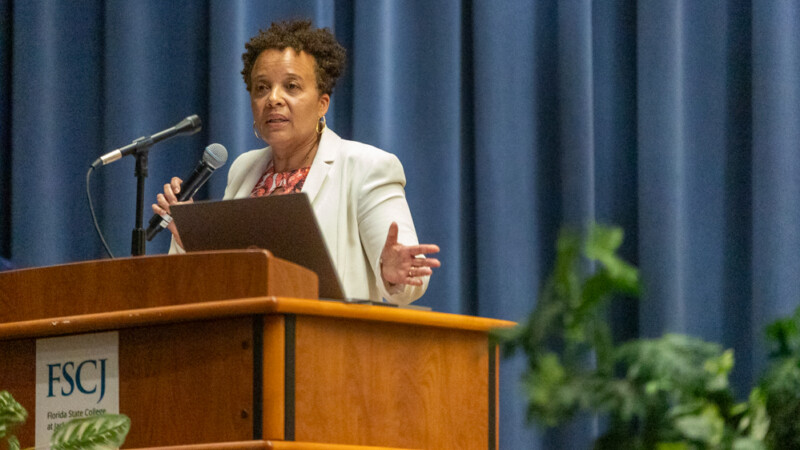A federal judge has rejected a potential class-action lawsuit that alleged the state has discriminated against historically Black Florida A&M University in issues such as funding and programs.
U.S. District Judge Robert Hinkle last week issued a 29-page ruling that dismissed the case filed by lawyers for six FAMU students. He wrote that the plaintiffs did not meet a key legal test of showing that disparities among state universities were rooted in what is known as “de jure” segregation — segregation sanctioned by law.
As an example, the lawsuit alleged FAMU has faced underfunding when compared to other state universities. But Hinkle wrote that a state funding formula approved in 2014 for all 12 state universities “is facially neutral, relying on measurable criteria including such things as retention and graduation rates and employment results.”
“The plaintiffs assert the formula is unfair to FAMU, which draws a disproportionate share of students with educational and socio-economic backgrounds making it more difficult to succeed in college,” Hinkle wrote. “The assertion is not without force. But the (lawsuit) alleges no facts that would support a finding that the formula is either … traceable to the de jure segregation that ended decades ago or … a result of intentional racial discrimination.”
As another example, the lawsuit alleged that duplications of programs with Florida State University and other universities have harmed FAMU. It contended that FAMU needs to have high-demand, unique academic programs to help draw a wide range of students. A key example in the case was a decision in the 1980s that created a joint engineering program for FAMU and Florida State students, rather than having the program only at FAMU.
But Hinkle, whose ruling addressed U.S. Supreme Court precedents such as the 1954 decision in Brown v. Board of Education and a 1992 decision in a Mississippi case about segregation in higher education, wrote that the fact FAMU and Florida State “both offer basic math classes and degrees in accounting — and a host of other disciplines — can hardly be characterized as an impermissible vestige of de jure segregation. These are standalone, major research universities with their own individual existence, course offerings, and degree programs.”
“The plaintiffs complain that FAMU has too few unique, high-demand programs — programs not available at any of the 11 other state universities,” Hinkle wrote. “But asked at oral argument for an example of any program FAMU is lacking — any program the plaintiffs assert FAMU does not offer today because of the prior de jure segregation or current intentional discrimination — the plaintiffs could come up with none. FSU and (the University of Florida) have larger student bodies than FAMU and offer more courses, but the … complaint alleges no facts that would support a finding that this is traceable to de jure segregation or intentional racial discrimination.”
Hinkle in June dismissed an earlier version of the lawsuit but allowed the plaintiffs to come back with a revised version to try to address his concerns. The revised case, filed in July, contended that state practices involving FAMU violated the Equal Protection Clause of the U.S. Constitution and what is known as Title VI of the Civil Rights Act of 1964.
State officials’ “acts and omissions in determining what programs FAMU can and cannot offer and which of these programs are also offered or only offered at neighboring (traditionally white institutions), perpetuates the segregation era policy of defining an institution by race rather than by its programmatic offerings,” one part of the lawsuit said. “FAMU has always been and remains the ‘Black School.’ Its identity as an institution of higher learning is not based on what programs it offers (or other academic criteria such as the strength of its facilities, professors and faculty research productivity).”







